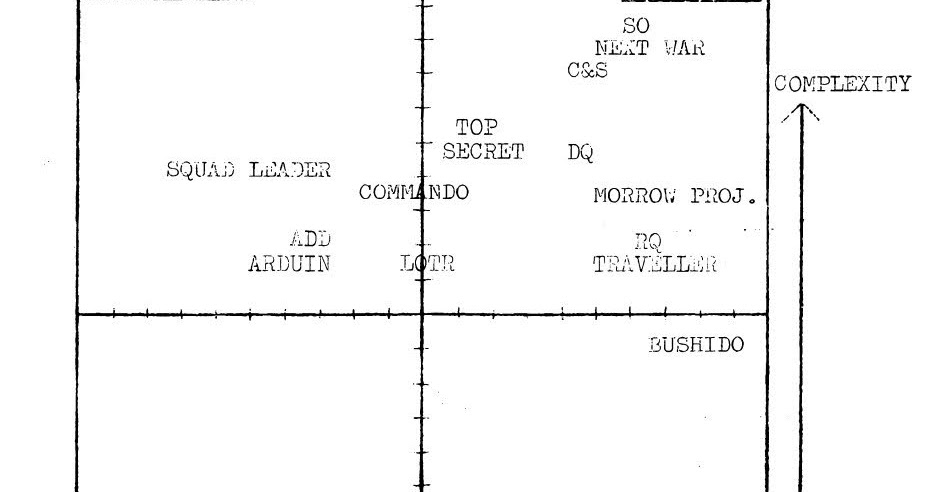My thoughts on this are thus:
1) Despite what some people think is “the soul” of D&D, it’s actually had multiple, distinct instantiations over it’s almost 50 years.
* Though very kindred, OD&D and troupe based, pawn stance Wargaming is distinct from Moldvay Basic Dungeon Crawling.
* Moldvay Basic Dungeon Crawling is distinct from Expert (and on) and 1e Hex Crawling and Sandboxing.
* Expert (and on) and 1e Hex Crawling and Sandboxing is distinct from 2e and 3.x Storyteller/Metaplot/AP play.
* 4e Scene Based, Story Now is distinct from 2e and 3.x Storyteller/Metaplot/AP play.
* 5e is back to the 2e and 3.x Storyteller/Metaplot/AP play.
2) Given that the above is true, the assertion that there is a unifying “soul of D&D” (typically under that 2e/3.x/ 5e Storyteller/Metaplot/AP play) is verifiably not true.
3) If that isn’t true, then what is the nature of “soul of D&D”? Is it the genre/milieu? Is it particular mechanical artifacts? Is it the dungeon? Is it the dragon? Is it the strategic play centered around Adventuring Day vs Loadout and controlling that recharge? Is it compelling combat encounters, puzzles, parlreys, and explorations? Is it player orientation toward PC(s)? Is it play priorities and principles? Is it authority distribution?
Depending upon your edition lens, it’s a different. A moving target. If that’s the case (that D&D has dynamically changed much more than its given credit for), who is to say where the fault line of “lost its soul” lies?
1) My experience is mostly in 1E, 3.x (including PF1E) and 5E. The people I played 1E with, played it in a much more story-oriented way, both before and after 2E was out. I found 3.x to have a similar focus, though the APs weren't anything I ever really engaged with (because published adventures don't make sense to me in my brain) and to me it seemed as though it brought the character build in to D&D, which was something I knew from point-based games like Champions (I gather there are elements of this in late 2E, but ... I never played with those). I've found that 5E has less focus on the character build than 3.x (some people will think this is good, some bad) and unlike 3.x intra-party balance is a thing into the higher levels. The versions I've played had more unity of feel than you seem to ascribe to D&D (possibly because you have experience with editions I don't). Even back in the days of 1E, I was never a huge fan of dungeoncrawls or hexcrawls.
2) Leaving aside the fact I have never played 4E, given that I found there to be more unity in my experiences of D&D prior to 4E, it'd probably be unsurprising if I found a game so radically different from my prior experiences of D&D to be "not-D&D."
3) I wouldn't say D&D has "lost its soul," even when talking about editions not to my taste. For me, D&D has always been about the stories that emerge from play--I'm pretty sure I've said elsewhere the stories that emerge from play are the point of play, and I stand by that. The mechanical artifacts--what I think of as "legacy stuff"--are more about the game always using similar language, even if that language evolves over time (this has me thinking about Chaucer and Middle English and Modern English, but even the more-recent loss of the distinction between
less and
fewer is an evolution, sort of). I think stories can emerge from play, with ... if not every possible authority distribution, then at least most of the likely ones; I think stories can (and should) include whatever the players (and the DM) find to be compelling at the time--I think the fact that a D&D story (campaign) can shift from (among others) object-quest to mystery to location-defense to special-ops raids is a strength of the game, and something that is missing from the more narrowly-focused games that seem to be indie-darlings: Blades in the Dark seems to me to only want to tell one type of story, as does Apocalypse World. I guess if I were going to say what D&D's soul is, I'd say it's this flexibility.
I don't deny that D&D is (or can be) a moving target. Even 5E alone is, because there is so much room for tables to play it differently--my tables almost certainly run differently than anyone else's--but I think that's a strength of the game, not a weakness (though I'll admit it makes it difficult to talk about the game forensically or analytically). That's most of the reason I've stopped (well, mostly stopped

) arguing about 5E with people who base their opinions of 5E on the written rules and haven't played it.
I guess D&D is kinda like a shuffle-beat, which ... the line I've heard is that every shuffle-beat is a negotiation between the drummer and the bassist. Every D&D game/table is a negotiation among the people there.

 playingattheworld.blogspot.com
playingattheworld.blogspot.com





